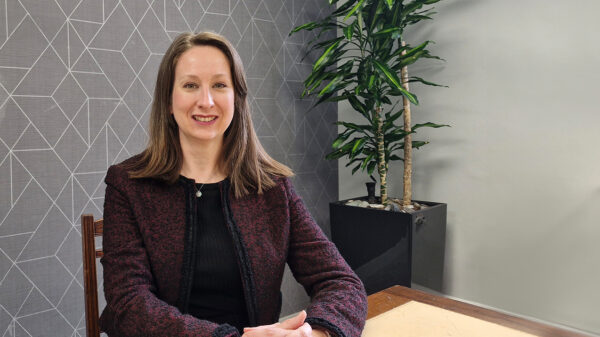

Ofsted’s new inspection regime
The news this month about Ofsted’s removal of single grade headline for schools buried another important Ofsted news story relevant to social care providers. This is that from September this year Ofsted has commenced inspections of providers of supported accommodation for 16 and 17 year-olds.
This is a relatively recent section of the sector to be regulated; the requirement to register these services only having come into force in October 2023. More on the registration headaches that came with that and how we can help with those are here.
Now that registration of these providers, or not as the case may be, is well underway, the regulator is moving to inspect these services and, where it deems necessary, take enforcement action. This article examines some of the detail of this new inspection regime and how providers might prepare.
Timing of inspections
Ofsted have stated that they will give two days’ notice before arriving for on-site inspections, though the inspection will begin upon announcement. The two days’ notice reflects the minimum notice required to allow an inspection to be carried out that properly depicts daily operation, whilst balancing the need to make arrangements to hear from young people and staff.
Before arriving for on-site inspections, inspectors will review internal files and evidence to develop a plan of action. This plan will be sent to providers, detailing the lines of enquiry, areas of apparent strengths and weaknesses and areas where further evidence needs to be gathered, as well as where the inspection will begin.
In addition to this, Ofsted will provide a survey to providers to share with young people living at the Supported Accommodation before arriving. It should be noted that first registrants will not necessarily be inspected first, since this would make the order of inspections easy to predict and contravene the ‘surprise’ element of an Ofsted inspection.
Providers can expect on-site inspections to last three days conducted by two inspectors, though this will be scaled down for providers with less premises, with a single inspector taking two days.
During the inspection
During the inspection, inspectors will talk to a representative sample of young people, reflecting the size of the provider and diversity of their service users in order to assess the experiences of young people in the accommodations. Additionally, inspectors will interview staff, including regular and agency staffing. Inspectors will also analyse a range of documentary evidence, though their focus will largely lie on the practice and processes the documents represent, rather than any issues with the documents themselves.
Providers will be assessed against the quality standards, outlined in s3 of the Supported Accommodation Regulations (“the Regulations”).
Inspection outcomes will follow the newly introduced three-outcome model, with Ofsted departing from their regular four outcomes. The new three outcomes are:
- Consistently strong service delivery that leads to typically positive experiences and progress for children. Where improvements are needed, leaders and managers take timely and effective action
- Inconsistent quality service delivery that adversely affects some children’s experiences, and this may limit their progress
- Serious or widespread weaknesses that lead to significant concerns about the experiences and progress of children. Leaders and managers must take urgent action to address failings.
After the inspection
Ofsted have indicated that, following the inspection, the inspector will arrange a meeting with the Registered Individual to provide initial feedback and a provisional outcome. They have stated that this provisional outcome may be shared, though be mindful that this outcome is subject to possible change.
Within 18 days of the investigation, providers will receive a draft report. If any complaints arise from the draft report, minor complaints can be lodged, or a formal complaint can be raised, within five working days of receiving it.
Any minor complaints raised will be assessed quickly and addressed alongside the final report, though any formal complaints will delay release of the final report to allow for a response. Inspectors should provide information about the complaints procedure at the start of an investigation, though this information can also be found online. Unless a formal complaint has been raised, the final report will be sent to the provider within 30 working days of the inspection, and will be published five working days after it is sent.
Re-inspection timeframes
Subsequent inspections will take place within a three-year window, though the outcome of the previous inspection will influence when the next inspection takes place. Where Ofsted have found the service is consistently strong, the next inspection will be towards the end of the three-year window.
Where Ofsted found inconsistent quality, the inspection will be within 18 months, whereas if they found serious or widespread weaknesses, an inspection will take place within six months. Additionally, if there are any serious concerns, Ofsted will carry out unannounced monitoring visits to check sufficient steps to safeguard and protect young people have been taken.
Preparing for inspection
Providers are encouraged to develop an understanding of Ofsted’s new protocols. Providers should also read the ‘Guide to the Supported Accommodation Regulations’ (“the guide”) and the quality standards, outlined in s3 of the Supported Accommodation Regulations. Ofsted also ran its own webinar on the subject which can be found online.
Ofsted commentary on the new registration and inspection regime
In a recent blog post available here, Ofsted’s national director for Social Care, Yvette Stanley sets out some ‘red lines’ when considering supported accommodation as an option for looked-after children and care leavers. She stressed it is not right for all older children and also gave the following warning to providers who stray outside their registration:
“If we believe a supported accommodation provider is either operating as an unregistered children’s home, or not providing the level of care that the child clearly needs, we will act.
This action will always be in the best interests of children. We will use our powers carefully, and act proportionally. Any action will be made on a case-by-case basis. This may mean that we work with a provider to make sure that it becomes suitably registered. But, when we have immediate concerns for the safety and welfare of children, we will not hesitate to take more urgent and serious action”.










